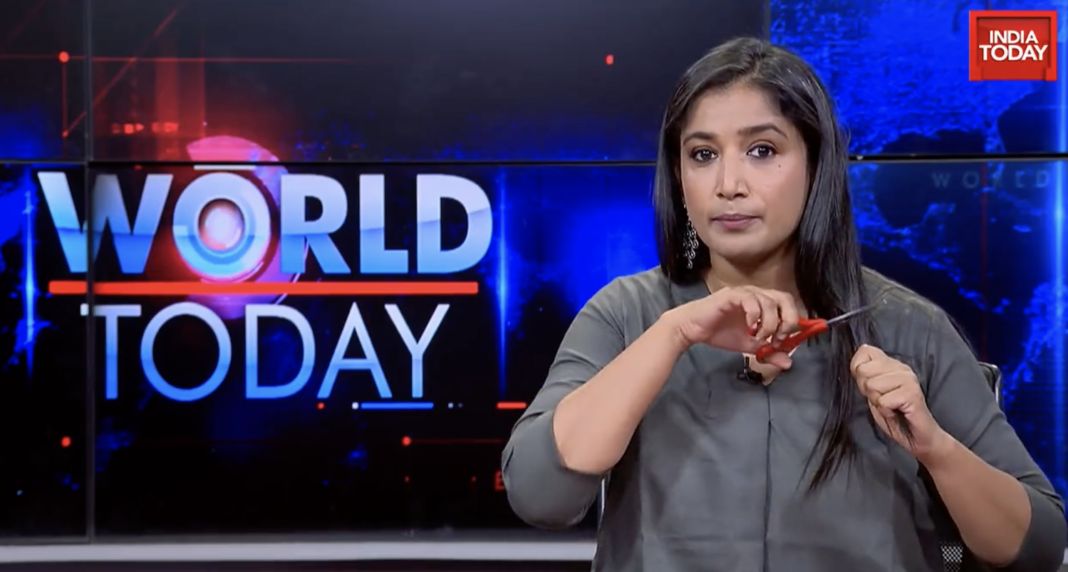NEW DELHI: Indian activists have started to publicly cut their hair in a show of solidarity with Iranian women at the forefront of the biggest anti-government protests since 2009.
Iran’s anger has grown since mid-September, spreading to all provinces and 80 cities. The women’s protests were ignited by the death in custody of Mahsa Amini, a 22-year-old who was arrested by Iranian morality police after being accused of not properly wearing her headscarf.
Many women have turned to cutting their hair as an act of defiance in a stance against the rules of the hijab being compulsory. The act has been adopted by others, including women in India.
Geeta Mohan, “India Today” anchor, cut her hair on air on Saturday and told her audience that Amini’s death “has started a revolution.”
She added: “Women suffered even in the developed world, in the east, far east. To all these women I say ‘stand up now.’ It is now or never. I today stand up in solidarity with all these women and the fight for freedom.”
Activist and physician Dr. Anupama Bhardwaj, from Noida, made a similar display of support on social media, sharing a video in which she cut her hair while urging others to raise their voices against oppression.
She said: “Such incidents in the 21st century are extremely unfortunate. All must come together to vociferously protest against such an atrocious move.”
Ten-year-old environmentalist Licypriya Kangujam, who has been referred to as India’s Greta Thunberg, held a solo demonstration in front of the Iranian Embassy in New Delhi on Saturday. Holding a placard that read “Stand With the Women of Iran,” she also cut her hair.
She told Arab News: “I am very shocked to see the videos on social media of how the schoolchildren and young women are being beaten badly and killed daily by the Iranian regime for holding democratic protests after the death of Mahsa Amini.”
Dozens of protesters have been killed as Iranian authorities intensify their crackdown on demonstrations. Norway-based Iran Human Rights estimates that the death toll is at least 154.
Amnesty International has accused Iranian security forces of killing children after troops fired “live ammunition, metal pellets and tear gas at protesters, bystanders.”
“This is unacceptable,” Kangujam said. “The world must stand in solidarity with those brave Iranian women who are fighting for freedom.”
However, in India, where authorities in the state of Karnataka slapped a hijab ban on Muslim students earlier this year, the demonstrations of support are also drawing criticism.
Sadaf Jafar, a political and social activist, told Arab News: “I wonder why these women were silent when Muslim girls were denied their rights to wear the hijab.
“I don’t have any problem with the Indian women standing up with Iranian women,” Jafar said, but added: “Feminism should be equally applied whether it’s the question of the rights of women in Iran and India.”
Maimoona Molla, from the All India Democratic Women’s Association, was also critical of the selective outrage among some Indian female activists, saying the case of “subjecting women agency to coercion” was the case in both Iran and India.
“You cannot coerce women into either wearing hijab or not wearing hijab,” she said. “What happened in India was a forcible removal of hijab. What is happening in Iran is just the opposite of that.”




